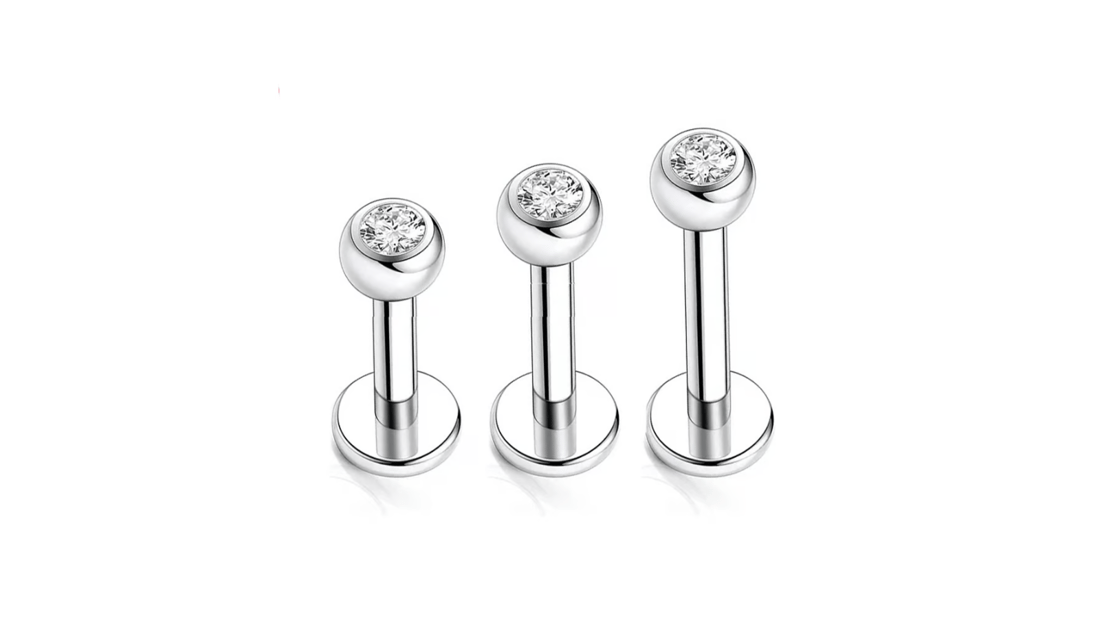The Advantages of Using Titanium Alloys for Ball Lip Nails
Titanium is a versatile metal that has been widely used in various industries due to its excellent characteristics, including high strength, corrosion resistance, and low density. One of its most popular applications is in the manufacturing of ball lip nails. These fasteners are essential in the construction of structures that require high levels of precision, such as aircraft, medical devices, and machinery. In this article, we will explore the properties, uses, and benefits of Titanium alloy ball lip nails.
The Main Characteristics of Titanium Alloys
Titanium alloys are composed of a mixture of titanium and other elements, such as aluminum, vanadium, and molybdenum. The addition of these alloying elements improves the mechanical and physical properties of pure titanium, such as hardness, ductility, and corrosion resistance. Titanium alloys are also lightweight, biocompatible, and non-magnetic, making them ideal for applications that require a high strength-to-weight ratio.
The Benefits of Using Titanium Alloy Ball Lip Nails
Titanium alloy ball lip nails offer several benefits compared to other types of fasteners. First, their high strength and low weight make them ideal for applications where weight reduction is critical, such as in aerospace and sports equipment. Second, titanium alloys are highly resistant to corrosion and oxidation, which ensures the longevity and durability of the fasteners. Third, titanium alloys are biocompatible, meaning they are not toxic or harmful to the human body, making them suitable for use in medical implants and devices.
The Applications of Titanium Alloy Ball Lip Nails
The aerospace industry is one of the largest users of titanium alloy ball lip nails. These fasteners are used in the construction of aircraft, including commercial airliners, military planes, and spacecraft. The medical industry also uses titanium alloy ball lip nails for orthopedic implants and medical devices, such as pacemakers and prosthetics. The sports and recreation industry uses titanium alloy ball lip nails for lightweight and high-performance equipment, such as bicycles, golf clubs, and tennis rackets.
The Manufacturing Process of Titanium Alloy Ball Lip Nails
The manufacturing of titanium alloy ball lip nails involves several processes, including forging, rolling, machining, and heat treatment. First, a titanium alloy ingot is heated and pressed to form a bar or rod. The bar is then rolled and shaped into the desired dimensions using a rolling mill. Next, the ball lip nail is machined to the precise shape and size using a CNC lathe or milling machine. Finally, the ball lip nail is heat-treated to improve its mechanical properties and surface finish.
The Importance of Quality Control in the Production of Titanium Alloy Ball Lip Nails
Quality control is critical in the manufacturing of titanium alloy ball lip nails. The production process must be carefully monitored and controlled to ensure that the fasteners meet the desired specifications, such as dimensions, tolerances, and surface finish. The quality of the raw materials used in the production process must also be carefully checked to ensure that they meet the required standards. Non-destructive testing methods, such as ultrasonic testing, X-ray testing, and visual inspection, are used to detect any defects in the fasteners.
The Future of Titanium Alloy Ball Lip Nails
The demand for titanium alloy ball lip nails is expected to increase in the future, driven by the growth of industries that require high-performance materials, such as aerospace, medical, and sports equipment. The development of new titanium alloys with improved properties, such as higher strength and corrosion resistance, may also expand the range of applications for these fasteners.
The Environmental Impact of Titanium Alloys
Titanium alloys are generally considered to have a low environmental impact compared to other metals. They are non-toxic, non-reactive, and biologically inert, meaning they do not have adverse effects on the environment or human health. The production process of titanium alloys requires a significant amount of energy, but the use of renewable energy sources, such as solar and wind power, may reduce their carbon footprint.
The Cost of Titanium Alloy Ball Lip Nails
Titanium alloy ball lip nails are generally more expensive than other types of fasteners, such as steel or aluminum. The high cost is primarily due to the cost of the raw materials used in their production and the complexity of the manufacturing process. However, the benefits of using titanium alloy ball lip nails, such as their high strength, corrosion resistance, and biocompatibility, may outweigh the cost in specific applications.
The Maintenance and Repair of Titanium Alloy Ball Lip Nails
Titanium alloy ball lip nails require minimal maintenance due to their high corrosion and wear resistance. However, they may require occasional cleaning and lubrication to maintain their performance and prevent damage. In case of damage or failure, the fasteners may be repaired or replaced using the same manufacturing process as the original part.

